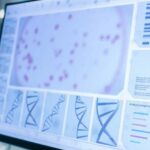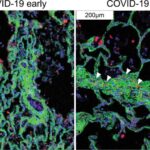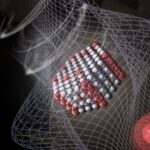
Study involved health care personnel, first responders, and essential workers in six states.
A new CDC study provides strong evidence that mRNA COVID-19 vaccines are highly effective in preventing SARS-CoV-2 infections in real-world conditions among health care personnel, first responders, and other essential workers. These groups are more likely than the general population to be exposed to the virus because of their occupations.
The study looked at the effectiveness of Pfizer-BioNTech and Moderna mRNA vaccines in preventing SARS-CoV-2 infections among 3,950 study participants in six states over a 13-week period from December 14, 2020 to March 13, 2021.
Results showed that following the second dose of vaccine (the recommended number of doses), risk of infection was reduced by 90 percent two or more weeks after vaccination. Following a single dose of either vaccine, the participants’ risk of infection with SARS-CoV-2 was reduced by 80 percent two or more weeks after vaccination.
It takes about two weeks following each dose of vaccine for the body to produce antibodies that protect against infection. As a result, people are considered “partially vaccinated” two weeks after their first dose of mRNA vaccine and “fully vaccinated” two weeks after their second dose. These new vaccine effectiveness findings are consistent with those from Phase 3 clinical trials conducted with the vaccines before they received Emergency Use Authorizations from the Food and Drug Administration. Those clinical trials evaluated vaccine efficacy against COVID-19 disease, while this study evaluated vaccine effectiveness against infection, including infections that did not result in symptoms.
“This study shows that our national vaccination efforts are working. The authorized mRNA COVID-19 vaccines provided early, substantial real-world protection against infection for our nation’s health care personnel, first responders, and other frontline essential workers,” said CDC Director Rochelle P. Walensky, MD, MPH. “These findings should offer hope to the millions of Americans receiving COVID-19 vaccines each day and to those who will have the opportunity to roll up their sleeves and get vaccinated in the weeks ahead. The authorized vaccines are the key tool that will help bring an end to this devastating pandemic.”
One of this study’s strengths is its design: participants self-collected nasal swabs each week for RT-PCR laboratory testing, regardless of whether they had developed symptoms of illness. Researchers were able to look for evidence of SARS-CoV-2 infection irrespective of symptoms. A small number (10.7 percent) of infections in this study were asymptomatic (i.e., did not result in symptoms). However, the majority of infections (58 percent) occurred among people whose infections were identified by testing before they developed symptoms or knew they were infected. The study demonstrates that these two mRNA vaccines can reduce the risk of all SARS-CoV-2 infections, not just symptomatic infections.
This is important because preventing both asymptomatic and pre-symptomatic infections among health care workers and other essential workers through vaccination can help prevent the spread of SARS-CoV-2 to those they care for or serve. Findings from this study complement earlier reports that these two mRNA COVID-19 vaccines can reduce both asymptomatic and symptomatic SARS-CoV-2 infections.
This study also provided positive news about partial (one-dose) vaccination. The one-dose VE estimate of this study (80 percent) is consistent with other recent VE studies following the first dose of Pfizer-BioNTech vaccine among health care providers. Studies conducted in the United Kingdom and Israel showed that one dose was about 70 percent and 60 percent effective, respectively, against SARS-CoV-2 infection. The current results provide reassurance that people start to develop protection from the vaccine two weeks after their first dose. The greatest protection was seen among those who had received both recommended doses of the vaccine.
This CDC study was conducted through the HEROES-RECOVER network, a network of prospective cohorts that share a common protocol and methods. This network is part of a vaccine effectiveness surveillance system made possible by federal pandemic flu preparedness funding.
This study is the first of many planned COVID-19 vaccine effectiveness studies CDC is conducting to evaluate the benefits of COVID-19 vaccines in various populations and across different outcomes, such as preventing infections, doctor’s visits, hospitalizations, or deaths. Results from these studies assist the medical and public health experts on the Advisory Committee on Immunization Practices and CDC to make important vaccine policy decisions aimed at saving lives.










